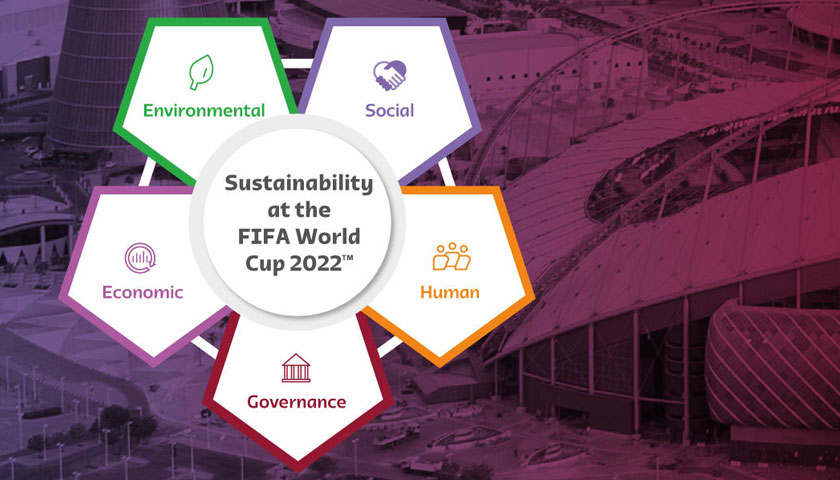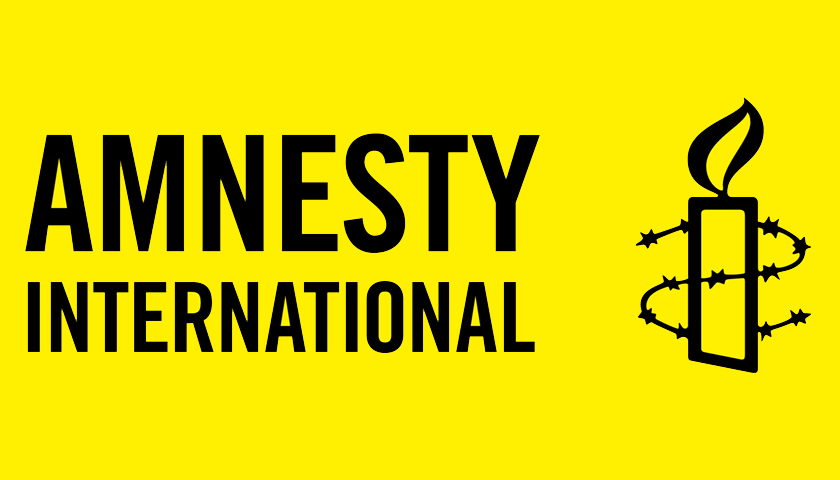In 2022, the FIFA World Cup™ will be held in the Arab world for the first time, in a fast-growing economy and in the most geographically compact area since the inaugural edition of the tournament in 1930. As any host, Qatar presents common and unique challenges to be addressed, as well as unparalleled opportunities to leave a lasting positive legacy beyond the event.
The path to achieve that ambitious goal started in 2015, when FIFA and the Supreme Committee for Delivery & Legacy (SC) began to develop and implement the event’s Sustainability Strategy – the first to be planned and delivered jointly by FIFA, the host country and the local organisers, represented in this case by the FIFA World Cup Qatar 2022 LLC (Q22). The associated policy applies to all functional areas and projects involved in the preparations for and staging of the tournament, in addition to post-event activities.
To deliver on that shared vision, five sustainability commitments have been defined: (1) to develop human capital and safeguard workers’ rights; (2) to provide an inclusive tournament experience; (3) to catalyse economic development; (4) to deliver innovative environmental solutions; and (5) to set an example of good governance and ethical business practices. On that basis, a total of 22 objectives have been described in detail, together with more than 70 concrete initiatives and programmes to deliver the strategy and achieve the objectives set.
“The FIFA World Cup offers us a unique opportunity to bring about positive change – one that FIFA and Qatar cannot, and will not, let slip away. All critical topics related to the event have been identified and duly addressed in this strategy, such as workers’ welfare, human rights, non- discrimination and environmental protection. The document is also in line with the UN’s Sustainable Development Goals, and we are committed to contributing to those through the power of football and of the biggest single-sport event on the planet,” said FIFA Secretary General Fatma Samoura.
“When Qatar bid to host the FIFA World Cup 2022, it did so with a vision to use the tournament as a catalyst for sustainable, long-term change in Qatar and across the Arab world. From the start, we believed in the power of football and the FIFA World Cup to inspire innovation, to build bridges between cultures and peoples and to accelerate positive social transformation. Our measure of success for the tournament in Qatar will ultimately be the legacy it leaves behind. This strategy will help Qatar to realise that vision and ensure its success,” said the SC Secretary General and Q22 Chairman, HE Hassan Al Thawadi.
The issues and initiatives that form the framework of the strategy were identified with the help of a thorough and continuous consultation process with local and international stakeholders and thematic experts through surveys, workshops, meetings and the circulation of drafts. Throughout the process, over 100 national and international governmental, non-governmental and private-sector organisations were consulted. Furthermore, the development process for the strategy also included a full human rights salience assessment, a first for a mega-sporting event.
“The BWI (Building and Wood Workers’ International) recognises the commitment and efforts made by the SC and FIFA to improving the working and living conditions of construction workers building the 2022 tournament projects in Qatar. The SC, in particular, has taken the risk and broken new ground by going far beyond declarations to form a partnership with the BWI in order to conduct joint safety inspections and train elected workers’ representatives. This is action on the worksite and not mere words and promises of reforms. It is making a difference for construction workers,” said BWI General Secretary Ambet Yuson.
“In the strategy, FIFA and the other tournament organisers commit to expanding these efforts to cover workers in other sectors involved in delivering the tournament. We know that this work has already begun. The workers’ rights legacy of the 2022 tournament will be more meaningful once these initiatives are implemented for all workers in Qatar – in construction and beyond,” added Yuson.
FIFA World Cup Qatar 2022™ Sustainability Strategy



